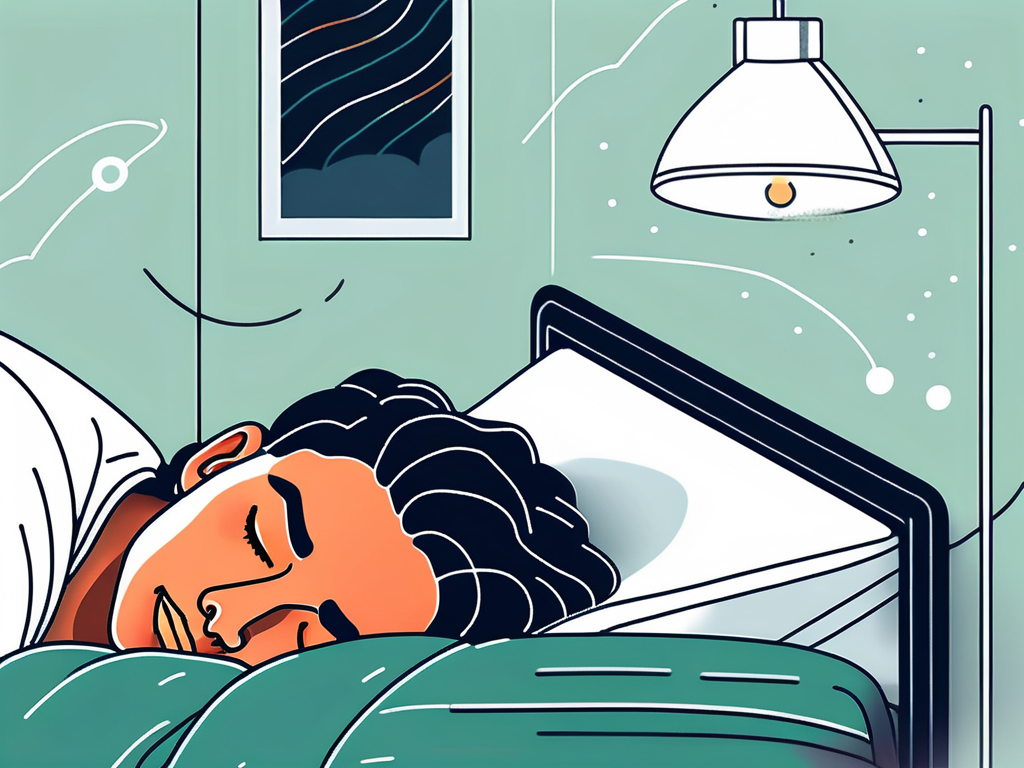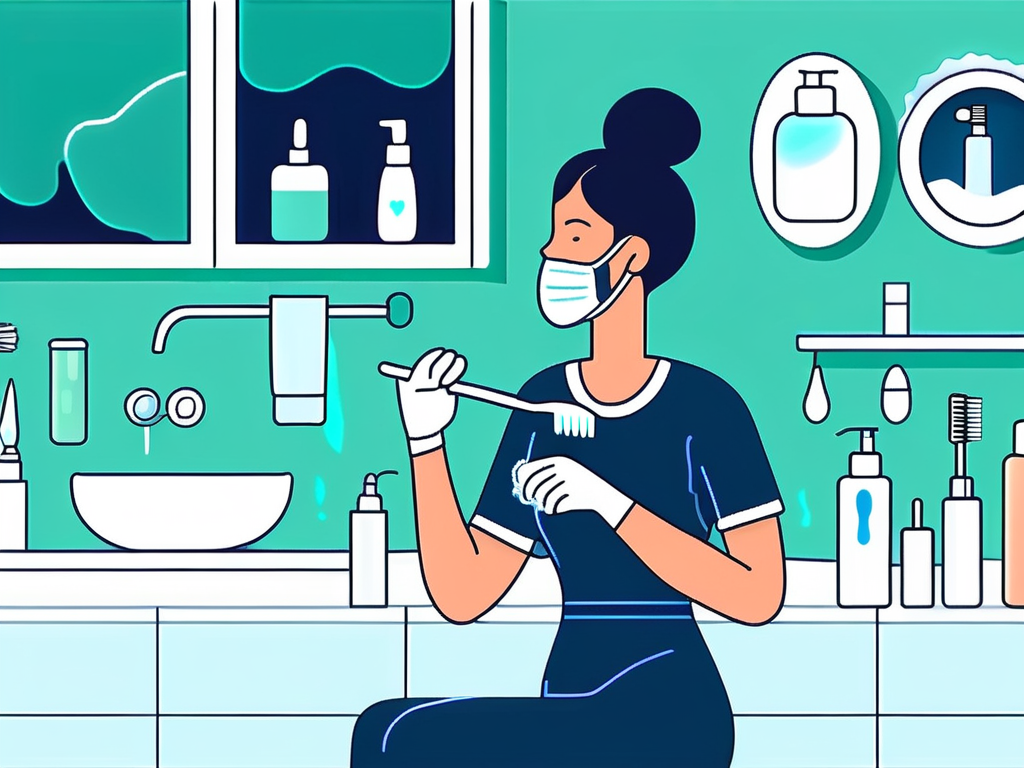A mouth guard is a protective device designed to cover the teeth and gums, providing a cushioning effect against impact. While mouth guards are commonly used during physical activities such as sports, there are instances where individuals may consider wearing them every night. This article will delve into the purpose of night mouth guards, their relationship with dental health, potential risks and side effects, the importance of proper care and maintenance, consulting with dental professionals, as well as alternative options for better oral health.
Understanding the Purpose of a Night Mouth guard
Night mouth guards, also known as dental mouth guards or bite splints, are dental appliances specially developed to address certain dental issues that may arise during sleep. The primary purpose of a night mouth guard is to protect the teeth and jaw from the harmful effects of teeth grinding and clenching, a condition known as bruxism.

The Role of Mouth Guards in Dental Health
Bruxism is a common condition that can lead to various dental problems such as tooth wear, fractures, and even temporomandibular joint (TMJ) disorder. By wearing a night mouth guard, individuals can minimize the impact of bruxism and provide a cushioning effect that helps prevent tooth damage.
Night Mouth Guards and Bruxism
Bruxism typically occurs unconsciously during sleep and can be caused by multiple factors such as stress, misaligned teeth, or sleep disorders. Night mouth guards work by creating a barrier between the upper and lower teeth, reducing the force of grinding and protecting the enamel.
In addition to bruxism, night mouth guards are also sometimes prescribed for individuals with sleep apnea or snoring issues. These conditions can be exacerbated by the position of the jaw during sleep, and a mouth guard can help align the jaw properly, facilitating improved breathing and reducing snoring.
Furthermore, night mouth guards come in various types and materials to cater to individual needs. Custom-fitted mouth guards, made by taking impressions of the patient's teeth, offer the best fit and comfort. Over-the-counter mouth guards are also available, but they may not provide the same level of protection and comfort as custom-made ones.
It is essential to maintain proper hygiene when using a night mouth guard to prevent bacterial growth and ensure its longevity. Regular cleaning with a toothbrush and mild soap, as well as storing the mouth guard in a ventilated container, can help keep it clean and odor-free. Additionally, periodic check-ups with a dentist are recommended to assess the mouth guard's condition and effectiveness in protecting against dental issues.
Potential Risks and Side Effects of Wearing a Mouth Guard Every Night
While wearing a night mouth guard can offer significant benefits, it is essential to be aware of the potential risks and side effects associated with prolonged use.
Adding an extra layer of protection to your teeth and jaws during sleep can provide relief from conditions like bruxism and snoring. However, it's important to understand the nuances of using a mouth guard regularly to make an informed decision about your oral health.
Possible Discomfort and Adjustment Period
As with any dental appliance, adjusting to the sensation of wearing a mouth guard during sleep may take some time. Initially, individuals may experience mild discomfort or find it challenging to sleep while wearing the device. However, with consistent use, most people adapt and find relief from their bruxism or snoring symptoms.
It's common for individuals to go through an adjustment period where they may need to experiment with different types of mouth guards to find one that offers the right balance of comfort and effectiveness. Consulting with a dentist can help in selecting the most suitable mouth guard for your specific needs.
Oral Hygiene Concerns
Proper oral hygiene becomes even more critical for individuals wearing night mouth guards. Failure to maintain a clean mouth guard can lead to the accumulation of bacteria, plaque, and even fungus. To prevent oral health issues, it is crucial to follow specific cleaning instructions provided by the dental professional or manufacturer.
Regularly cleaning your mouth guard with a non-abrasive toothpaste and lukewarm water can help prevent the buildup of harmful microorganisms. Additionally, storing the mouth guard in a clean, dry case when not in use can further safeguard your oral health.
The Importance of Proper Mouth Guard Care and Maintenance
To ensure the longevity and effectiveness of a night mouth guard, proper care and maintenance are paramount.

When it comes to protecting your teeth and jaw during sleep, a well-maintained mouth guard is essential. Not only does it provide a cushion against grinding and clenching, but it also helps in preventing dental injuries and muscle strain. By following a few simple steps, you can ensure that your mouth guard remains in top condition for a long time.
Cleaning Your Mouth Guard
After each use, it is essential to thoroughly clean the night mouth guard to remove any bacteria or debris that may have accumulated. This can be done by gently brushing the appliance with a soft toothbrush and non-abrasive toothpaste or using a dental appliance cleaner recommended by the dentist.
Moreover, soaking the mouth guard in a mixture of warm water and mild antiseptic mouthwash can help eliminate germs and odors, keeping it fresh and hygienic. Remember to rinse it thoroughly after cleaning to ensure no residue is left behind.
In addition, it is crucial to keep the mouth guard dry when not in use to prevent the growth of microorganisms. Storing it in a clean, ventilated container or case will help maintain its cleanliness and ensure optimal hygiene.
When to Replace Your Mouth Guard
Over time, night mouth guards may show signs of wear and tear. It is important to regularly inspect the device for any cracks, holes, or changes in shape. If these issues are present, it may be necessary to replace the mouth guard to ensure continued protection and effectiveness.
Furthermore, changes in your dental structure or jaw alignment may also warrant a new mouth guard. Consulting your dentist for regular check-ups can help determine if your current mouth guard is still suitable for your needs or if a replacement is necessary to maintain oral health.
Consulting with Dental Professionals
If you are considering wearing a mouth guard every night or have any concerns regarding your dental health, it is advisable to consult with dental professionals who can provide expert advice tailored to your specific needs. Dentists specializing in oral health can offer valuable insights into the benefits of using a mouth guard, especially for individuals experiencing issues like teeth grinding (bruxism) or obstructive sleep apnea.
When seeking guidance from dental professionals, it's essential to communicate any symptoms or discomfort you may be experiencing. This information helps them assess your condition accurately and recommend the most suitable treatment options to alleviate your concerns and improve your overall oral health.
When to Seek Professional Advice
If you suspect that you may have bruxism, snoring issues, or sleep apnea, it is vital to consult with a dentist or sleep specialist for a comprehensive evaluation. They can assess your dental and medical history, perform a thorough examination, and provide an accurate diagnosis. Early detection of these conditions can prevent further damage to your teeth and overall well-being.
Moreover, dental professionals can also educate you on preventive measures to minimize the impact of these conditions on your oral health. From lifestyle changes to specialized treatments, their guidance can help you maintain a healthy smile and improve your quality of life.
Custom-made vs Over-the-counter Mouth Guards
Custom-made night mouth guards are often recommended by dental professionals due to their precise fit and level of protection. These mouth guards are crafted specifically for an individual's mouth, ensuring optimal comfort and effectiveness. While they may be more expensive, their superior quality and customization make them a preferred option for many.
On the other hand, over-the-counter mouth guards are readily available in various stores and pharmacies. These mouth guards come in generic sizes and may require some teeth adjustment to achieve a better fit. While they can provide temporary relief, they may not offer the same level of protection and comfort as custom-made mouth guards. It's important to weigh the pros and cons of each option based on your specific needs and budget constraints before making a decision.
Alternatives to Night Mouth Guards
While night mouth guards are an effective solution for many individuals, there are alternative options worth considering for better oral health and management of dental issues.
Lifestyle Changes for Better Oral Health
In addition to wearing a mouth guard, adopting a holistic approach to oral health can bring significant improvements. Stress management techniques, maintaining a healthy diet, avoiding excessive alcohol and caffeine consumption, and regular exercise can all contribute to reducing teeth grinding and promote overall wellness.
Other Dental Appliances for Night Use
Depending on the underlying dental condition, individuals may benefit from alternative dental appliances. Mandibular advancement devices (MADs) or continuous positive airway pressure (CPAP) machines are commonly used for sleep apnea treatment, while tongue stabilizing devices (TSDs) focus on reducing snoring. Consultation with a dental professional can help determine the most suitable appliance for individual needs.
Wearing a mouth guard every night can provide significant relief for those experiencing teeth grinding, snoring, or related dental issues. While there may be potential risks and side effects, proper care, hygiene, and regular consultations with dental professionals can help minimize these concerns and ensure the long-term safety and effectiveness of night mouth guards. Exploring alternative dental appliances and implementing lifestyle changes can also complement the use of mouth guards, promoting overall oral health and well-being.













